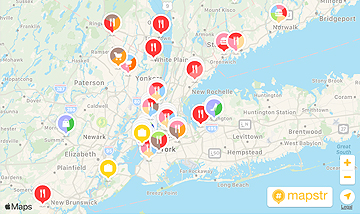Climate disruption/COP21/working group session on the Durban Platform
Paris, June 1, 2015
(…)
I have come – quite rightly – because the Durban Platform, ADP, is absolutely central in preparing what we hope will be a successful COP21 in Paris. This group isn’t known to the general public, but the nature of the way things work means that in order to prepare for the agreement we’re hoping for, the 196 parties – because there are 196 of us – must discuss the text which will be presented to us. It’s in these ADP sessions, in accordance with the decisions taken at international level, that this discussion can take place.
In the days to come, there will be huge amount of work to do in considering, one by one, the different issues raised and getting a text which is both concise and starts to resolve a number of issues. Other ADP sessions will take place at the end of August and in October. In the meantime, there will be ministerial meetings and, of course, a number of meetings at the United Nations, and then on different continents.
The ADP’s role is extremely useful. The two co-chairs and I pointed out that we’re relying a great deal on the delegates here to prepare this work. This morning, I explained to all the delegates how we’re preparing for the presidency. There’s a presidency approach. The three watchwords are: “listening” – every party must be listened to; “ambition”, because the Paris agreement has to have a certain level of ambition; and “compromise”, because obviously if we want to find points of agreement between 196 parties, there has to be a spirit of compromise.
And we must also, of course, meticulously prepare for what will be done in Paris, which will be based on four major points.
The first, which is essential, is about finding an agreement that’s universal, has legal force, can take on board the differences and is lasting, i.e. we don’t have to go back to redrafting this agreement every two or three years.
The second element is that we’ll no doubt talk on the occasion – as we will incidentally throughout the year – about finance. I’ve just come from a meeting with our African friends, who told me lots of interesting things, particularly that the issue of finance was decisive. So it will be discussed in Paris, but it will also be discussed beforehand.
There’s a third, very important aspect: in Paris – and beforehand – we’ll have the INDCs, the contributions from the different governments. So on the basis of the report to be produced by the Framework Convention Secretariat, we can have a number of discussions on what the totals of these contributions are.
And also – this is very novel, it’s the first time – Peru proposed an initiative, agreed by France, then finally agreed by everyone: the Lima-Paris [Action] Agenda and the Agenda of Solutions, where there are non-state actors, i.e. local authorities, big corporations, organizations, civil society, which are going to make a contribution, because if we want to move towards combating climate disruption, everyone obviously has to get started.
I’m often asked the question: “are you expecting a success…?”. Of course, we’re working on this; we know it’s extremely tough. If it weren’t tough, we would have already had, in the past, a universal agreement. We’ve never had one. We know it’s tough but, with this in mind, each of us is putting all our energy into achieving success. (…)./.














